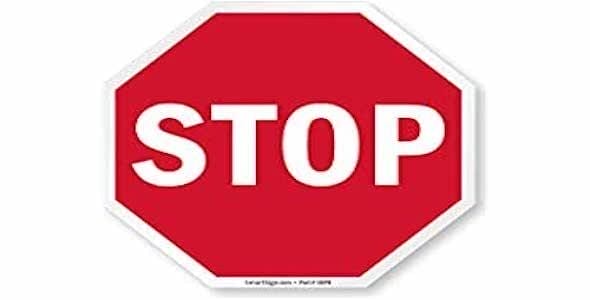Michigan stop sign accidents are more common than you think. In fact, the Federal Highway Administration reports that about half of all vehicles related injury accidents occur at intersections, including intersections controlled by stop signs. Here is a useful video about intersection safety:
While determining who is at fault in a stop sign accident may seem easy, in most cases the evidence will point to the driver who disobeyed or ran the stop sign in the collision. A car accident lawyer at The Joseph Dedvukaj Firm can investigate to determine who is responsible for your injuries and damages.
Understanding the Right of Way at Stop Signs in Michigan
When it comes to determining who is at fault in a stop sign accident, one of the first questions that needs to be answered is: “Who had the right of way?”
Michigan law requires drivers to come to a complete stop at stop signs and yield the right of way to crossing traffic:
“(6) Stop signs. Except when directed to proceed by a police officer, the driver of a vehicle approaching a stop intersection indicated by a stop sign shall stop before entering the crosswalk on the near side of the intersection, or if there is not a crosswalk shall stop at a clearly marked stop line; or if there is not a crosswalk or a clearly marked stop line, then at the point nearest the intersecting roadway where the driver has a view of approaching traffic on the intersecting roadway. After having stopped, the driver shall yield the right of way to a vehicle which has entered the intersection from another highway, or which is approaching so closely on the highway as to constitute an immediate hazard during the time when the driver would be moving across or within the intersection” (Michigan compiled laws annotated section 649)
This means that the drivers having the stop sign arriving at an intersection with only two opposing stop signs, the driver must stop for any traffic on the crossing street (commonly referred to as a “thru street”). But what are the rules at a four-way stop intersection? The National Highway Traffic Safety Administration (NHTSA) notes the following rules drivers should follow:
- Basic Driving Four Way Stop Sign Rule – The basic rule at a four-way stop is that the first vehicle to arrive and make a complete stop is also the first vehicle to proceed with caution.
- Farthest Right May Go First – If two or more vehicles get to an intersection at the same time, the vehicle farthest to the right has the right of way.
- Straight Traffic May Go First – If two drivers arrive at opposing stop signs simultaneously and one driver is turning left, the driver who is going straight has the right of way.
However, the NHTSA also echo’s Michigan law in that safety is paramount: “Even if you have the right-of-way, if there is any reason that you feel uncomfortable or that your safety is threatened, let the other traffic go ahead.” This isn’t necessarily a right-of-way rule, but rather a general defensive driving rule for protecting oneself when other drivers may make an error.
5 Common Types of Stop Sign Accidents:
Unfortunately, despite Michigan’s law requiring drivers to come to a complete stop and the clear right-of-way rules, car accidents at stop signs are still very common. Here are five types of common stop sign accidents with an explanation of which driver (or drivers) may be at fault:
1. You’re Rear-Ended at a Stop Sign
Rear-end collisions at stop signs usually occur for one of two reasons – either (i) the driver striking the rear of the vehicle ahead isn’t paying attention or (ii) the driver who causes the accident is following too close to be able to stop without hitting the rear of the vehicle in front before coming to a complete stop. In the vast majority of cases, a driver who rear-ends another vehicle will be presumed to be at fault and therefore liable for the collision.
2. You’re Hit While Turning Right at a Stop Sign
If you were hit while turning right at a stop sign, your legal rights depend on who had the right of way. If the other vehicle entering the intersection didn’t have a stop sign, you will be at fault. However, if the other vehicle involved had a stop sign too then who had the right of way (i.e., who arrived first or if your vehicle was farthest to the right and the driver to your left entered the intersection without waiting for you to go), then the driver who hit you would be liable.
3. You’re Hit While Turning Left at a Stop Sign
Similarly, if you got hit while turning left at a stop sign, the number of stop signs and the right-of-way rules above will determine who is liable for the collision. If you had the right of way, you should be able to recover just compensation.
4. You’re T-Boned or Hit Head-On Passing Through an Intersection
T-bone accidents and head-on collisions in intersections also occur frequently due to one driver’s failure to yield the right of way. If you were hit and seriously injured by a driver who ran a stop sign or who failed to wait his or her turn, that driver’s insurance company should have to pay for your accident-related damages.
5. You Hit Another Vehicle That Entered the Intersection
Even if you hit another vehicle that entering the intersection, you could potentially still have an accident claim. For example, if you hit the side of a vehicle that entered the intersection without stopping (and you had stopped appropriately, if required), an experienced attorney may be able to recover compensation on your behalf.
Do You Have A Viable Stop Sign Accident Claim? Find Out Now
Liability for an accident at an intersection with a stop sign can be tricky and complicated, depending on the applicable rules of the road. If you have been seriously injured or a loved one was fatally hurt by the negligence of a driver who failed to follow the rules of the road, you and your family may be entitled to significant compensation.
Please call The Joseph Dedvukaj Firm today at 1-866-HIRE-JOE today for a free case review. Our car accident personal injury lawyers serve clients throughout Michigan.


